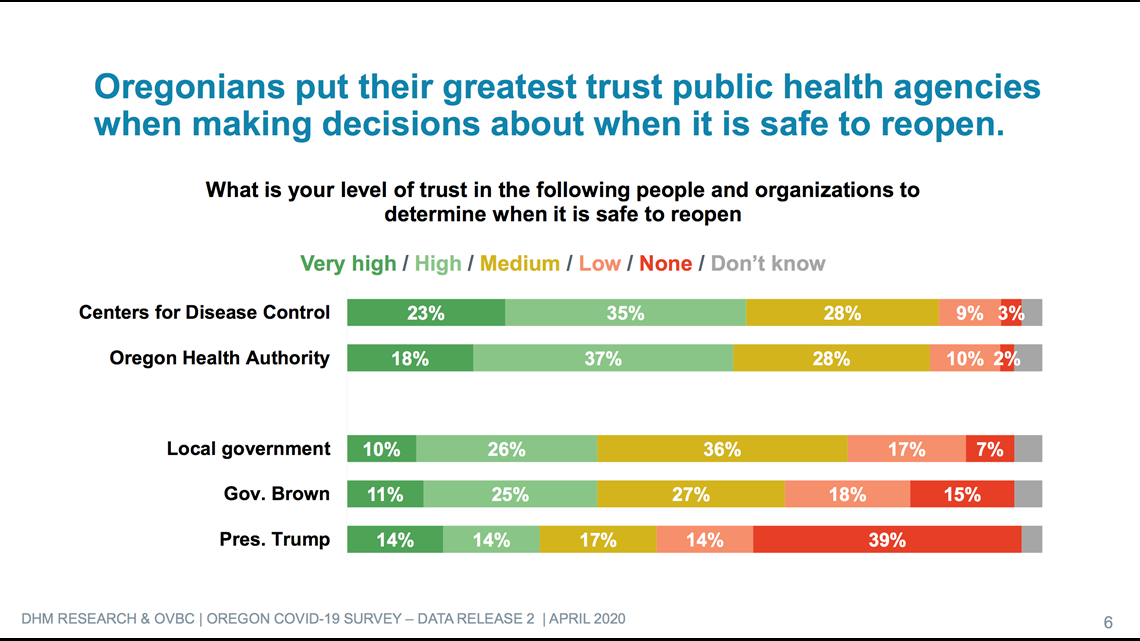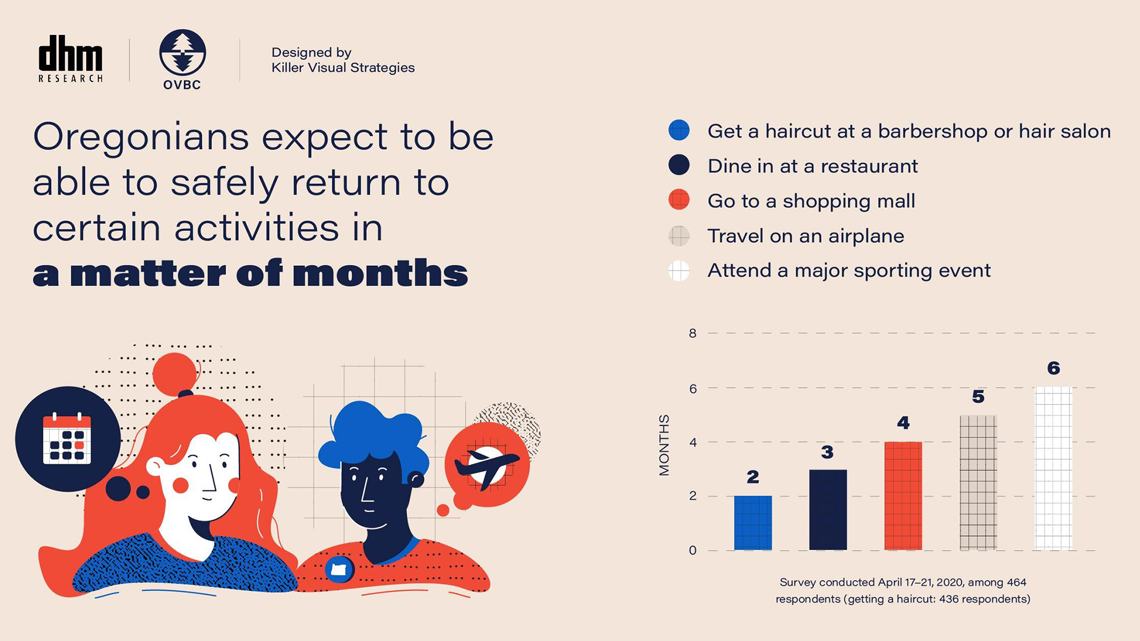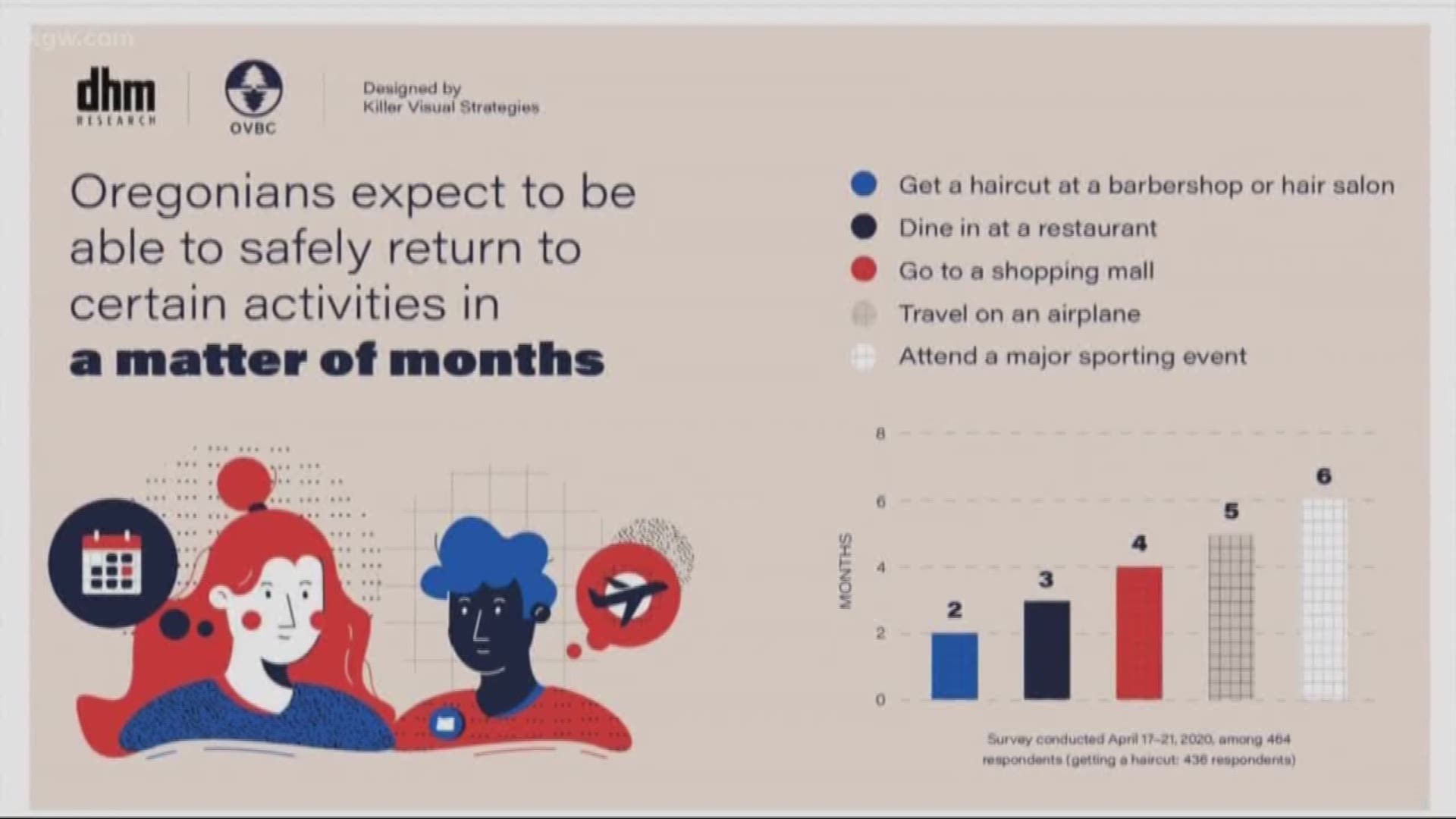PORTLAND, Ore. — New survey results released this week show most Oregonians expect to wait months before they can get a haircut or eat at a restaurant.
DHM Research, the group behind a recent survey showing 82 percent of Oregonians support stay-at-home efforts, says the numbers have a strong message for local leaders.
"Leaders need to understand what the public's thinking," said John Horvick of DHM. "Not making guesses, not going with their gut, not by comments on a website, but sort of real perspective."
Horvick said most people surveyed put their trust in public health experts and agencies, such as the CDC or Oregon Health Authority, over political leaders.
"The more politicians are out there in front, the more divided we're going to be," he said.


Horvick noted vocal protesters of stay-at-home orders across the country are in the minority. Data shows support for staying at home is much larger.
"It's also broad across political affiliation," Horvick explained. "I think that's really caught people's eye. More than 70 percent of Oregon Republicans support the stay-at-home orders...Oregon's not an outlier in that. If you look at other national surveys, support for stay-at-home orders is quite high as well."
DHM has released three sets of survey results in recent weeks. The second round showed most Oregonians expect normal outings to be off the table for months. While most expect getting a haircut will be OK in two months, eating at a restaurant, going to the mall, traveling on a plane, or attending a sporting event is expected to take between three and six months.


The third round released Friday showed 68% of Oregonians oppose general release of inmates to meet social distancing standards.
Other results gauged Oregonians' experiences within the health care system.
Horvick said moving forward, surveys will reassess how Oregonians' mental health is being impacted during the pandemic – as well as shine a light on which groups are taking the biggest hit economically.
Horvick has worked with DHM Research for 13 years. He acknowledged these unprecedented times are challenging, but said data serves an important purpose for everyone.
"We're asking what sort of information and conditions people want to see before they're going to reengage. And so helping [leaders] prioritize the actions that they'll take that align with the public's priorities...is really important," Horvick said. "And I think having these snapshots is going to be a great historical record."

